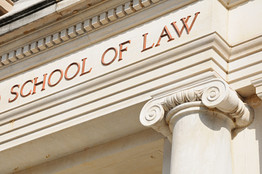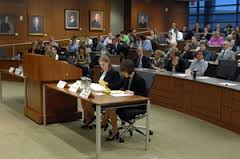A Defense of Law School Education
 Two weeks ago, the New York Times published an article entitled “A Steep Slide in Law School Enrollment Accelerates.” One of the major premises for the article was that prospective graduate school students have increasingly found law school not to be an attractive option anymore. According to the article, students likened their relationship to their schools as a business contract. The article was supported by ABA employment figures that showed that less than two-thirds of law school graduates found jobs that required passing the bar exam. I found the article and its premises unfair. The article, hardly the first to do so, equated law school success to finding long-term employment as a lawyer.
Two weeks ago, the New York Times published an article entitled “A Steep Slide in Law School Enrollment Accelerates.” One of the major premises for the article was that prospective graduate school students have increasingly found law school not to be an attractive option anymore. According to the article, students likened their relationship to their schools as a business contract. The article was supported by ABA employment figures that showed that less than two-thirds of law school graduates found jobs that required passing the bar exam. I found the article and its premises unfair. The article, hardly the first to do so, equated law school success to finding long-term employment as a lawyer.
Grading a law school education based on bar-exam-required employment is unfairly simplistic. The breadth of interesting employment opportunities available to law school graduates is incredible.

